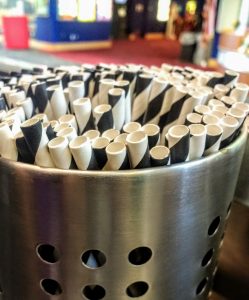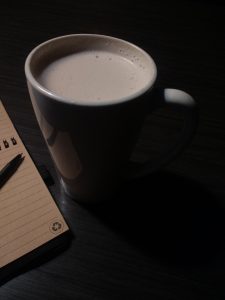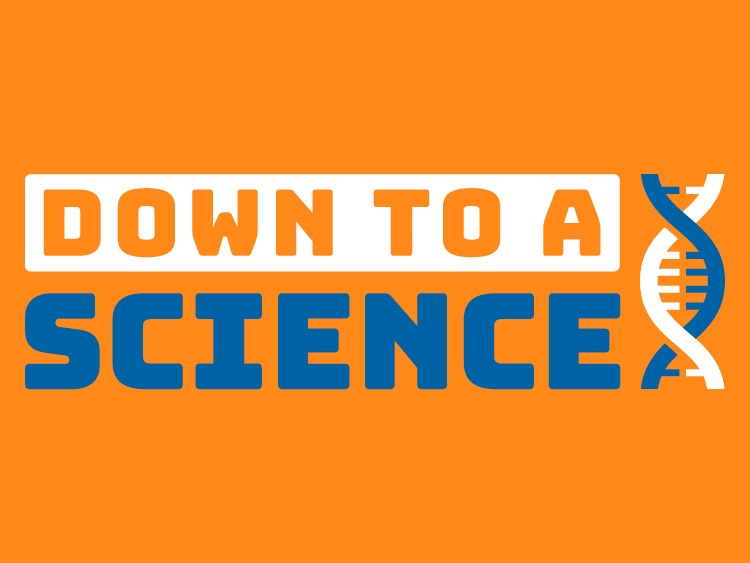 Something that “Our Changing Earth” drives home is the need for resilience. Extreme weather events are increasing in frequency and intensifying in impact, and it is becoming more likely that we will be facing multiple hazards at once. The exhibit emphasizes preparing for natural disasters; could it hurt to be more flexible in our personal lives, beyond how we respond to hurricanes, heat waves, and floods?
Something that “Our Changing Earth” drives home is the need for resilience. Extreme weather events are increasing in frequency and intensifying in impact, and it is becoming more likely that we will be facing multiple hazards at once. The exhibit emphasizes preparing for natural disasters; could it hurt to be more flexible in our personal lives, beyond how we respond to hurricanes, heat waves, and floods?
When it comes to my own routines, these were all created through practice. That makes them plastic, in the sense that they are movable and moldable. I know from whenever I have begun a new job — or thinking way back in college, when my schedule would change every semester — that I am capable of adjusting. It might take a few weeks to feel comfortable with this different commute or wake up time, but I always manage to get there. So, why should forming other habits be any different?
If the science backs it up, then we should be more than halfway toward meeting our goal of forming a new habit during this #21DayEarthChallenge.
As it turns out, I am not alone in believing that I am capable of altering my behavior. In the last year, the Connecticut Science Center Gift Shop has sold around 500 stainless straw packs and 3000 reusable bags. That equates to keeping approximately 876,000 throwaway plastic straws and 861,000 single-use plastic grocery bags out of the landfill — or more accurately, out of the landfill, incinerator, waterways, and all the other places that trash turns up.
 By carrying a mug around the last two weeks, I have spared 70 disposable cups. It’s not accurate to call them paper cups. The details vary from one cafe to the next, but they commonly have plastic lids and a poly-coating inside of the cups. The resources that go into creating something that is in active use for a few hours, at most, is staggering.
By carrying a mug around the last two weeks, I have spared 70 disposable cups. It’s not accurate to call them paper cups. The details vary from one cafe to the next, but they commonly have plastic lids and a poly-coating inside of the cups. The resources that go into creating something that is in active use for a few hours, at most, is staggering.
Some companies are making an effort to reduce their waste. In 2016, Starbucks set a goal for itself to double its recycled content and reusability of cups by 2020. Last spring, the company announced it would begin using strawless lids resembling sippy cups for non-blended cold drinks at all its Canada and United States locations in 2020. Locally-owned J. Rene Coffee Roasters, which operates a kiosk in the Connecticut Science Center lobby, currently uses biodegradable paper cups and recently replaced its plastic straws with paper ones.
Back to the challenge: this is not my first attempt to ditch disposable cups; it is my most successful one so far. Two weeks in, I forgot to carry a mug with me only one day and this was easily fixed. I had already left one on my desk at work, and as it so happens, there is a coffee machine right in the kitchen and the J. Rene coffee trailer one floor down.
What has been helpful to you in taking your daily action? What obstacles have you encountered?
Don’t forget to tag Connecticut Science Center on your social media posts and include the #21DayEarthChallenge hashtag!

Kerri Provost is a Communications Research Associate at the Connecticut Science Center who is outdoors whenever possible. She has an interest in fluvial geomorphology and is currently attempting to walk every block of Hartford. She is the co-producer of the Going/Steady podcast.



